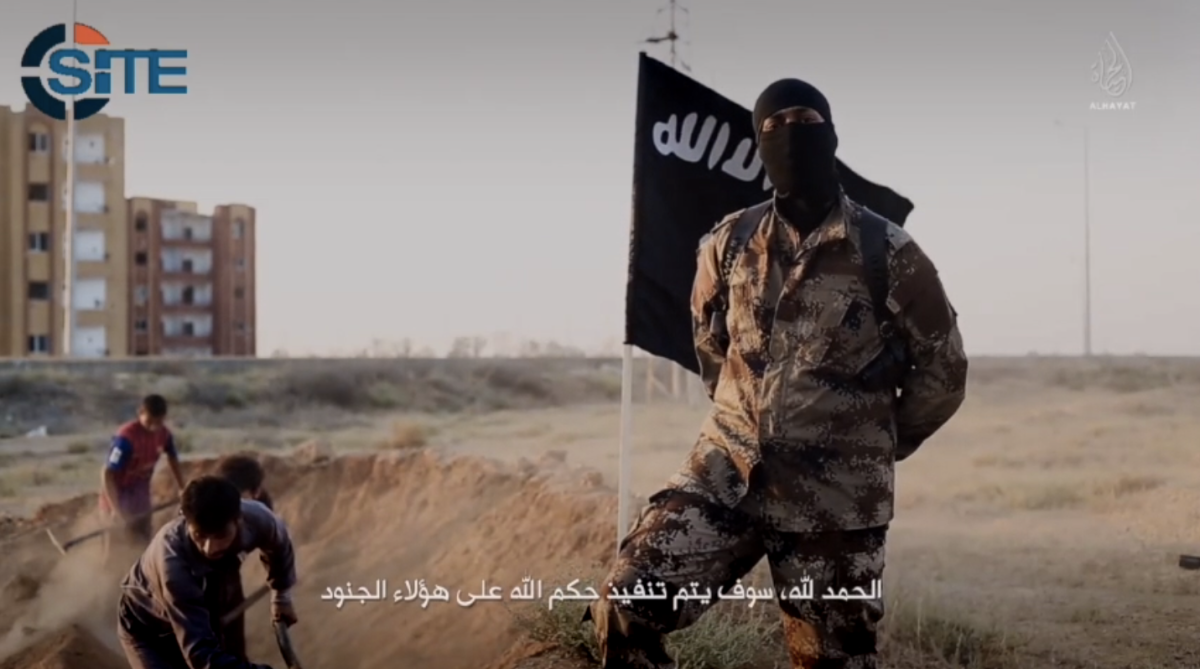A Canadian who was allegedly “a leading figure” in the ISIS media section has been taken to the United States to face terrorism charges, the U.S. Justice Department said Saturday.

The FBI took custody of Mohamed Khalifa from Kurdish forces in northeast Syria, where he was captured in January 2019, and flew him to the eastern U.S. to stand trial.
The U.S. has accused him of being a fighter and “lead translator in ISIS’s propaganda production and the English-speaking narrator on multiple violent ISIS recruitment videos.”
He was charged with conspiring to provide material support or resources to a foreign terrorist organization, resulting in death.
He faces a possible life sentence if convicted.

A former Toronto resident, Khalifa, also known as Abu Ridwan Al Kanadi, is the first Canadian ISIS member detained by the U.S.-backed Syrian Democratic Forces to be brought to the U.S. to face justice.

Get daily National news
Khalifa was under RCMP investigation, but the Liberal government has refused to bring Canadian ISIS members detained in Syria home for prosecution.
“I’m glad the U.S. had the political courage to do what the Canadian government did not,” said national security law expert Leah West, who interviewed Khalifa along with Global News in 2019.
“He is a Canadian, he left from Canada. It should be the responsibility of the Canadian government to hold him accountable for his crimes,” she said.
“But the Canadian government has proven repeatedly unwilling to hold Canadians who joined ISIS accountable for their crimes by refusing to repatriate them.”
In an interview with Global News, which met Khalifa at a Kurdish military facility in October 2019, he admitted to narrating ISIS execution videos, notably the gory 2014 production Flames of War.
The RCMP later seized the Global News recording of the interview, arguing the police force could not conduct its own interview with Khalifa because Syria was too dangerous.
According to the U.S. indictment, Khalifa traveled to Syria in early 2013 and joined ISIS that November, pledging allegiance to its then-leader Abu Bakr al-Baghdadi.
He was recruited into the ISIS media wing in 2014.
The U.S. Justice Department alleged a “primary focus” of the propaganda produced by Khalifa was enticing others to travel to ISIS-controlled territory to join the group, or to conduct attacks in the West.
As a “prominent figure” in the ISIS Media Bureau, called the “Diwan of Central Media,” he helped produce 15 videos, including Flames of War and Flames of War II, the U.S. alleged.
He also narrated “a series of recruitment videos entitled ‘Inside the Khilafah’ that depicted various aspects of daily life within the Islamic State and featured ISIS members encouraging potential recruits to join ISIS and conduct terrorist attacks against non-Muslims.”
“The narration in one of these videos encourages recruits unable to leave their home countries to join ISIS in conducting attacks in countries outside the Islamic State, displaying footage of ISIS attacks in Europe, including attacks in Paris, France; Brussels, Belgium; and Nice, France.
“The video also includes a voice recording of Omar Mateen, the Pulse Nightclub mass shooter, declaring his allegiance to ISIS during the June 12, 2016, terrorist attack in Orlando, Florida.”
During the time Khalifa was a prominent member of the propaganda wing, ISIS also produced videos showing the beheadings of U.S. hostages James Foley, Steven Sotloff and Peter Edward Kassig.
“It’s very interesting that the U.S. is going forward with this case and not Canada,” said Queen’s University professor Amarnath Amarasingam, who also interviewed Khalifa along with Global News in 2019.
“Ridwan is probably our easiest case. There are literally hundreds of hours of his voice recorded in ISIS media. Cases against other prisoners are slightly more difficult.”
“I suppose the U.S. sees him as important for reasons we probably don’t know yet.”
Stewart.Bell@globalnews.ca









Comments